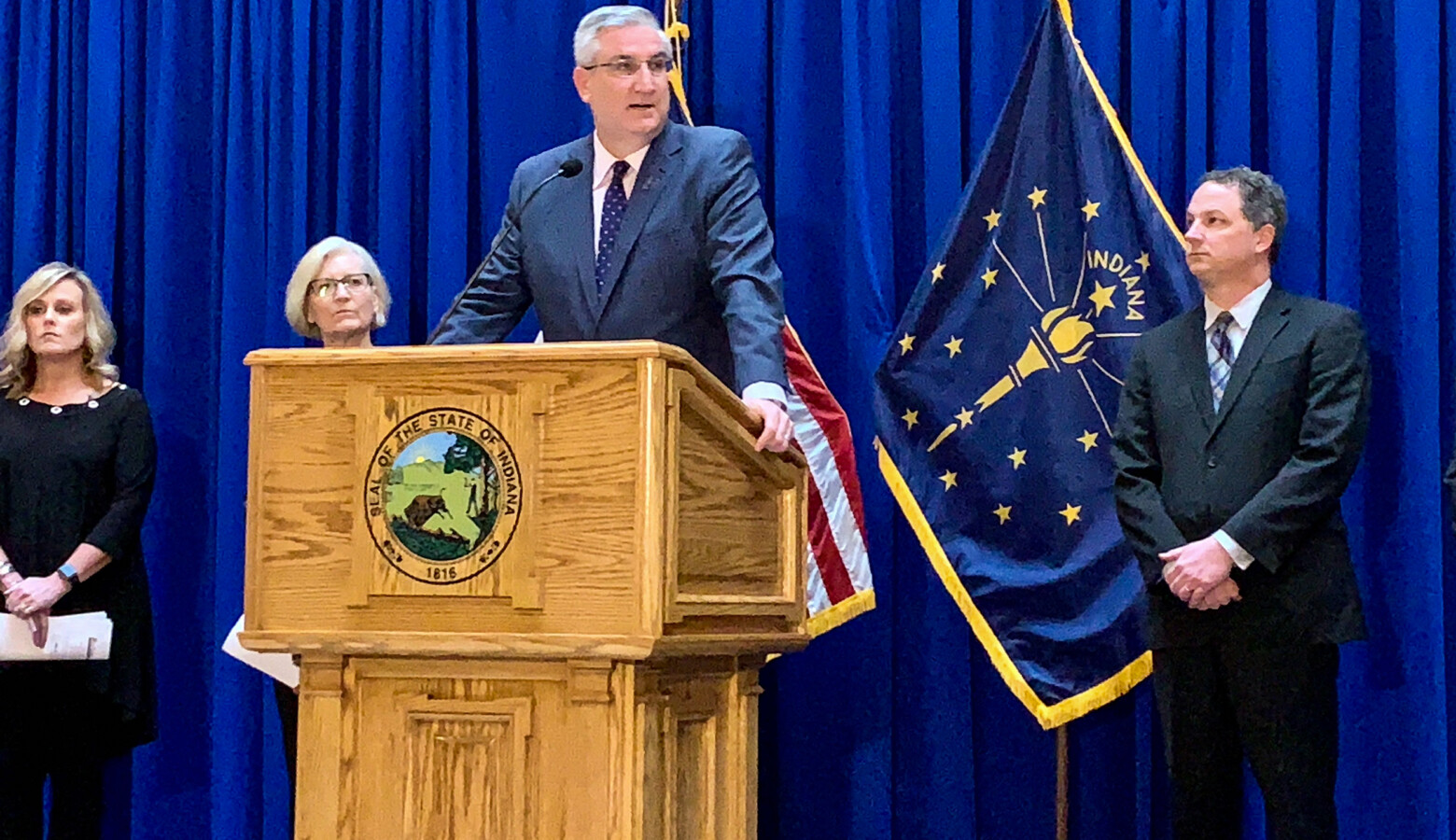Holcomb Orders All Indiana Schools Closed Through May 1

Gov. Eric Holcomb ordered all Indiana schools – public and non-public – to remain closed until at least May 1 while all standardized tests are canceled for this school year.
That’s two of a series of broad measures Holcomb announced Thursday to help those affected by the ongoing COVID-19 outbreak.
LEE MAS: ¿Qué Necesita Saber Acerca Del Coronavirus? Tenemos Respuestas.
Public Education Changes
State Superintendent of Public Instruction Jennifer McCormick says the state-required school closures could be extended through the end of the school year.
“There may be a need to come back and revisit that for the extended school year based on the dynamics of what is happening and the current situation,” McCormick says.
The governor previously signed an executive order allowing schools to waive up to 20 instruction days, but officials say more days may be needed in districts not using e-learning during the closures.
State exams that have been called off include the IREAD-3, ILEARN, and ISTEP+ for high schoolers.
McCormick says the department is working to ensure current high school seniors can meet all of the requirements to graduate.
The state is working with the U.S. Department Of Education to waive federal requirements for student absences, school accountability, and assessments. The Indiana Department of Education’s statement said the department will continue pursuing federal waivers to allow school meal services continue.
READ MORE: What Do You Need To Know About Coronavirus? We’ve Got Answers.
State Income Taxes Filing Delayed, Addressing Unemployment
Among the steps being taken – Indiana is delaying state income tax filing and payments until July 15. Small businesses are now eligible to apply for federal disaster loans. And Holcomb says the state is hoping to broaden its unemployment laws, including allowing those who file late to still get benefits. He says one year ago this week, 3,100 people filed for unemployment while 22,583 Hoosiers have filed the past three days.
“We are all trying to make sure that all of the resources are going to get to that individual who – you know, the employee who may have been laid off or whose world’s changed and the employer who had to lay that individual off,” Holcomb says.
Typically Hoosiers have to be able and willing to work, but the new guidelines relaxes those rules for those out of work due to COVID-19. It also waives unemployment insurance penalties for employers who have to lay off workers.
An executive order from Holcomb also allows workers to continue to get unemployment benefits if they elect to leave work due to the virus.
Utility Shut-Offs
The governor is also banning any utility company from shutting off service during the health crisis and stopping any foreclosure or eviction proceedings.
Several cities and companies had already suspended utility shut offs during the coronavirus pandemic.
Indiana’s May 5 Primary
Still up in the air is the fate of Indiana’s May 5 primary. Holcomb says he’s talking with election officials and state party leaders.
“They all know that I personally support postponing the primary election,” Holcomb says.
In a letter to the Indiana Election Commission, GOP Chair Kyle Hupfer and Democratic Party Chair John Zody said Hoosier voters have legitimate concerns about voting in person this May.
Current law only allows vote-by-mail if the person is totally unable to be at the polls on Election Day – for instance, if they’re going to be out of town, if they’re confined to a health care facility or their home, or if they’re a member of the military.
Holcomb says he’s not ready to mandate more business shutdowns, travel restrictions or shelter-in-place orders.
Contact Brandon at bsmith@ipbs.org or follow him on Twitter at @brandonjsmith5. Contact Jeanie at jlindsa@iu.edu or follow her on Twitter at @jeanjeanielindz.
Indiana Public Broadcasting’s Justin Hicks contributed to this story.
This is a rapidly evolving story, and we are working hard to bring you the most up-to-date information. However, we recommend checking the websites of the Centers for Disease Control and Prevention or the Indiana State Department of Health for the most recent numbers of COVID-19 cases.

